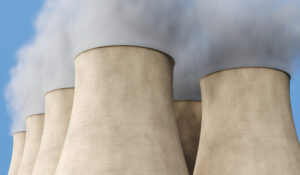As reported by Bloomberg, The World Bank has projected a sustained and significant increase in global demand for critical metals, including copper, nickel, cobalt, and lithium. In its latest report, the institution emphasized that the energy transition will be a dominant force reshaping commodity markets for decades to come.
“The shift to low-carbon technologies will lead to a structural, long-term increase in the consumption of certain key metals,” the World Bank stated. “This demand trajectory offers substantial economic opportunities for countries with the capacity to supply these resources.”
Naturally, the World Bank took the opportunity in its report to advise governments to implement sound fiscal policies, including the establishment of sovereign wealth or stabilization funds, to mitigate commodity price volatility. The report also recommended avoiding excessive debt accumulation and resisting protectionist trade measures that could undermine long-term growth.
For me, the takeaway here is not so much the World Bank’s lecture to developing economies but rather the growing international realization that critical metals like nickel are, not to put too fine a point on it, genuinely critical.
Anthony Milewski
Chairman, Nickel 28 Capital











